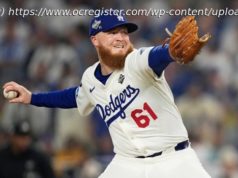The arrests of a prominent coach and player on Thursday were depressing but it is hard to have sympathy with a league that has embraced gambling
The arrests of a prominent coach and player on Thursday were depressing but it is hard to have sympathy with a league that has embraced gambling
The NBA scoreboard has turned into a stock ticker. Crowd chants, but half of them are watching their parlays instead of the play. Somewhere a coach calls timeout; somewhere else a bookmaker grins. This was always coming. The NBA invited gambling to the game when it signed lucrative sponsorship deals and paved the way for odds and offers to be splashed over our TV screens during games. So when the FBI finally showed up on Thursday, they were simply collecting the rent.
Portland head coach Chauncey Billups, whose playing career ended with his induction in the hall of fame, and Miami guard Terry Rozier were arrested Thursday in connection with an FBI investigation into allegations of illegal gambling and rigged poker games. Former player and assistant coach Damon Jones, who allegedly provided “inside information” about NBA games to bettors, was also taken into custody.
The FBI says Rozier told people close to him that he would leave a 2023 Hornets game early in a move that would help those in the know to haul in huge betting wins (the player’s lawyer says prosecutors “appear to be taking the word of spectacularly incredible sources rather than relying on actual evidence of wrongdoing”).
Billups, who has denied the allegations through his lawyer, is not accused of any wrongdoing related to the NBA, but is instead alleged to have taken part in rigged poker games with ties to the mafia. But even so, when the NBA got into bed with the big gambling companies, it normalized the culture of monetization of the game and the pitfalls and problems that come with betting.
If you want to see where gambling leads, look toward Texas, where casino magnate Miriam Adelson, billionaire heir to the Las Vegas Sands fortune and majority owner of the Dallas Mavericks, lobbies to build a super-casino–arena complex in the city’s heart. The project is pitched as “economic revitalization,” but what it really promises is basketball as bait for gambling.
The NBA has long said that its embrace of gambling creates transparency: regulated books flag anomalies, league partners share data, integrity units hum in the background.






